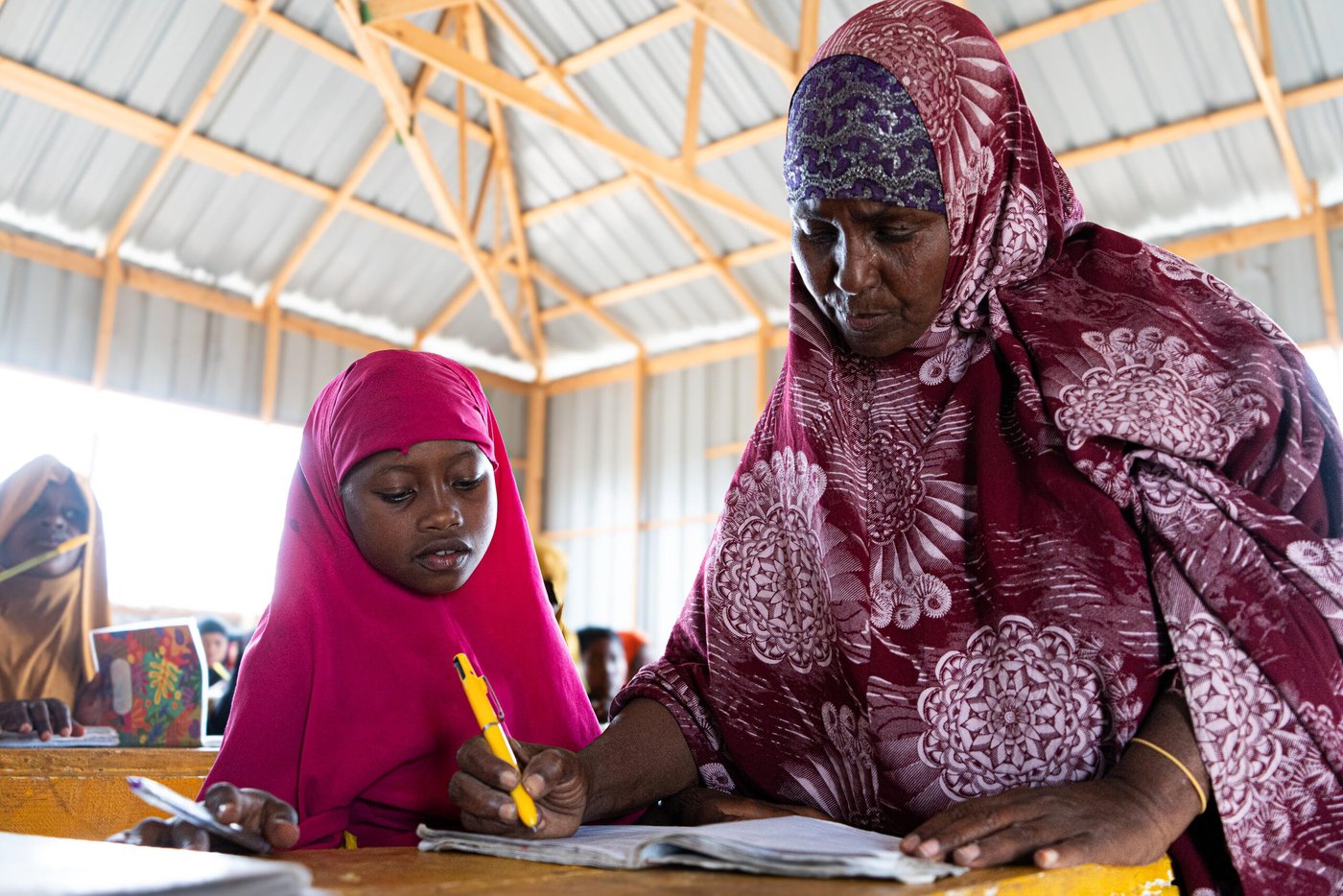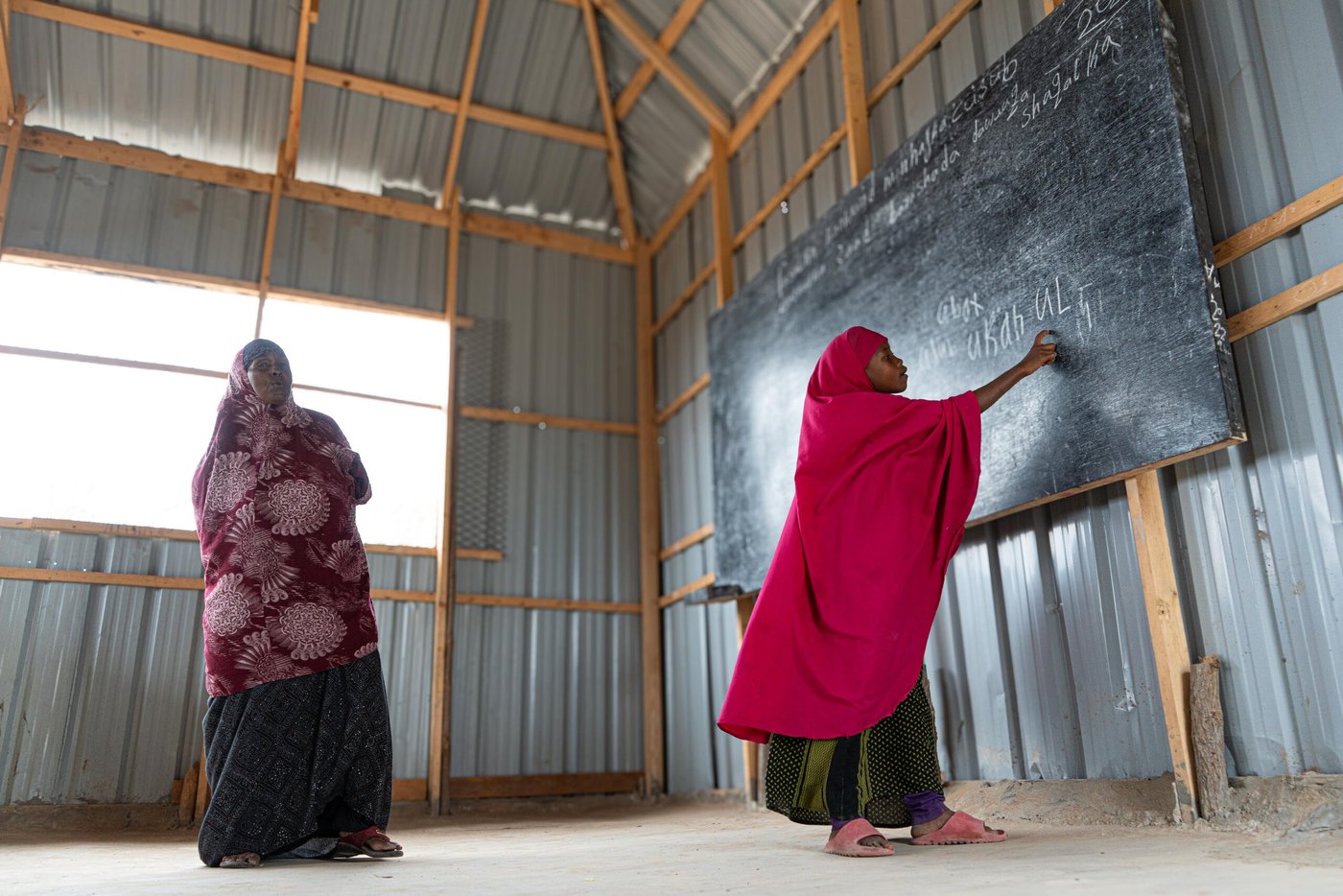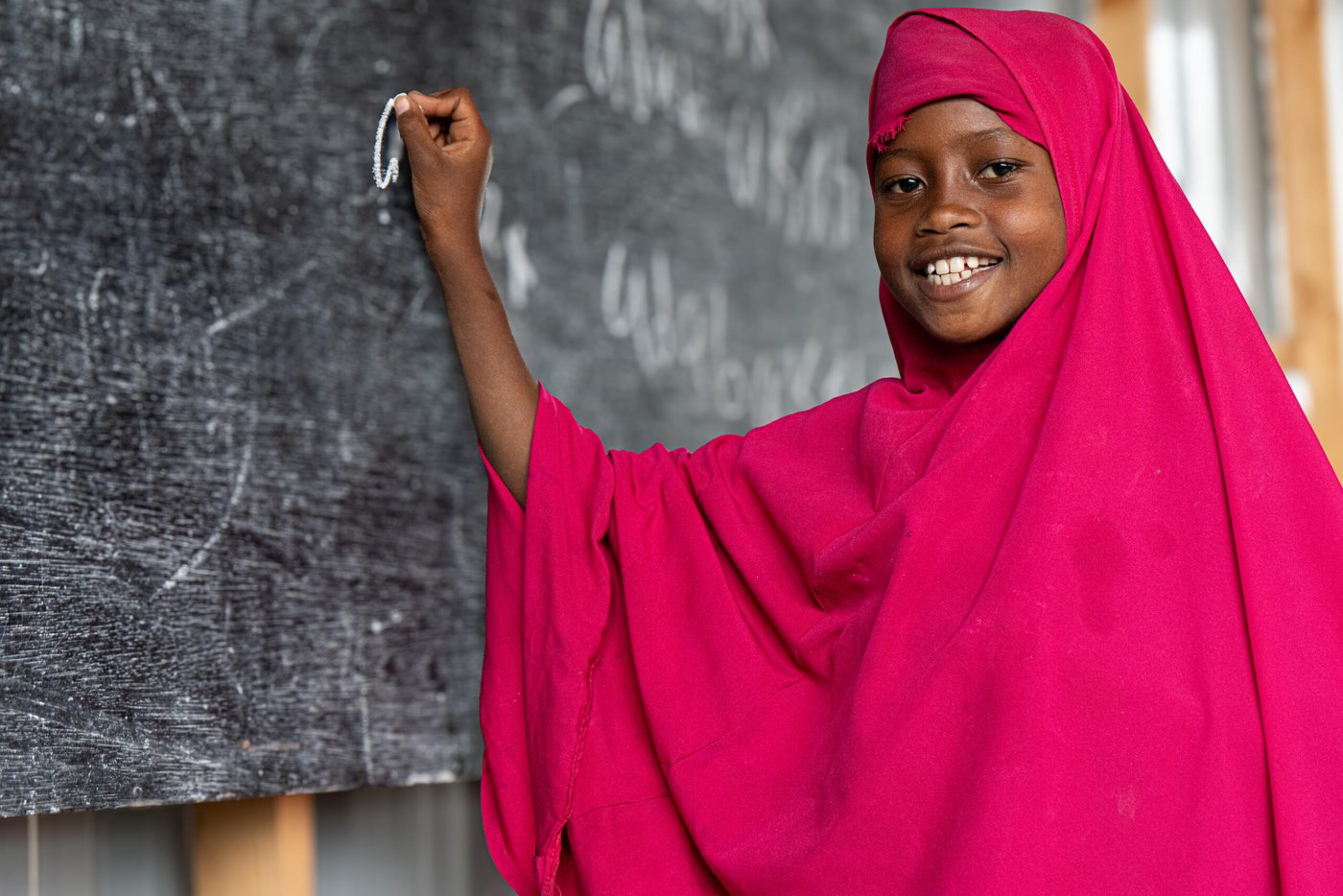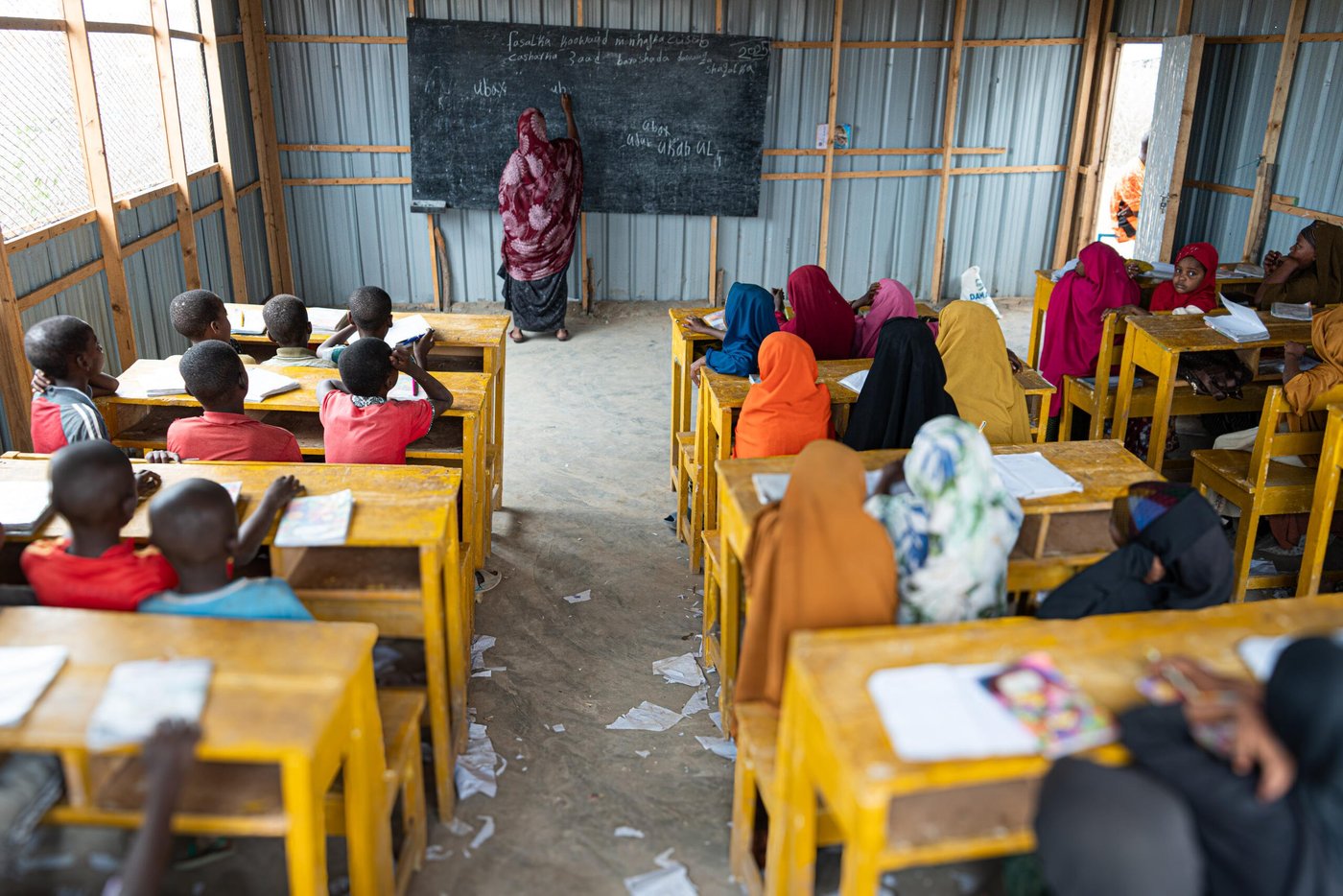
A childhood swept away
“I remember the water rushing into our house,” Sundus says quietly. “My mother grabbed my hand, and we ran. We left everything. I also lost my books.”
Her family, like thousands of others, had no choice but to flee. They sought safety in Towfiq displacement camp, on the outskirts of Jowhar town in Hirshabelle State of Somalia.
Today, Towfiq camp hosts 2,783 households – nearly 17,000 individuals – who were displaced by both conflict and flooding. Here, Sundus’s family is trying to rebuild their lives in a single-room shelter built of sticks and tarpaulin. But while they are safer from the floods, the struggles of displacement remain ever present.
Before the floods, Sundus lived a simple but joyful life in Marerey village. Her days were filled with school lessons, games with friends, and helping her parents tend to their farm and animals.
“I liked going to school in the village,” she recalls. “I loved drawing pictures on the board. My teacher used to say, ‘Sundus, you are clever.’” But when the family arrived in Towfiq, there was no school for children in the camp. The sudden halt to her education left a deep void.
For three years, Sundus stayed at home. Her family, once proud farmers, struggled without their land or livestock. With little income, survival became the priority, not education.

Sundus steps back into the classroom
Thanks to the Norwegian Refugee Council (NRC), with support from Education Cannot Wait (ECW) – the United Nations global fund for education in emergencies – established a temporary learning space in Towfiq camp in Jowhar. Under the ECW project, NRC constructed three new temporary learning spaces with latrines and rehabilitated three others in Jowhar district, Hirshabelle state of Somalia. In addition, 32 teachers received training, enabling 3,664 displaced children to access education.
For Sundus, the reopening of school doors marked the return of hope.
“When I registered for school, got books and pencils, I felt so happy,” she says, beaming. “I told my mother: ‘Now I can be a student again.’”
She is now proudly enrolled in first grade. Every day, Sundus walks to her classroom, carrying her bag tightly. Her new teachers describe her as eager, curious, and quick to raise her hand.
“I like mathematics,” Sundus says proudly. “When the teacher asks questions, I try to answer. Sometimes I get it right, sometimes not – but I keep trying.”

Education in crisis
The Emergency in Education for Flood-Affected Boys and Girls programme in Jubaland, Hirshabelle and Southwest State of Somalia provides a comprehensive response in targeted districts. The programme supports the construction and rehabilitation of temporary learning spaces, teacher training, provision of scholastic materials, pyscosocial support, and teacher incentives – ensuring that displaced children like Sundus can attend school and access quality education.
In Somalia, being out of school has devastating consequences. Displaced girls face heightened risks of child marriage, child labour, and recruitment into armed groups. According to the education cluster, an estimated 4.9 million children are out of school, and disparities are stark: school attendance among newly displaced children is as low as 21 per cent, compared with 39 per cent for non-displaced children.
“School keeps us safe,” Sundus says firmly. “When I am in class, I don’t worry about anything else. I just think about learning.”
Her words echo what many protection experts emphasise: education is not just about learning – it is a lifeline. It restores stability, provides safe spaces, and gives children a chance to imagine a different future.
Despite the hardships she has faced, Sundus has a clear vision of her future.
“I want to be a doctor when I grow up,” she says. “If someone is sick, I want to help them. I want to wear the white coat and have people trust me.”
Her determination shines through. Even at her young age, she knows that the road ahead will not be easy, but she believes education is the bridge.
“If I study, I can be anything,” she says. “If I stop, I will lose everything. I don’t want to stop again.”
Somalia has been hit by a cycle of climate disasters in recent years. Severe droughts, followed by catastrophic floods, have displaced hundreds of thousands. In Hirshabelle State alone, entire villages have been washed away.

Dreams for the future
Towfiq camp, where Sundus now lives, is crowded and resource-strapped. Families struggle daily with food shortages, water scarcity, and limited health services. For parents, ensuring their children’s education often feels impossible under such conditions.
Yet, programmes like this prove that education is possible, even in crisis. By providing safe learning spaces, trained teachers, and essential scholastic materials, children like Sundus are given back the childhoods that floods and conflict tried to take away.
Every afternoon, as the sun sets over Towfiq camp, Sundus carefully puts her notebooks and pencils back into her schoolbag.
“When I open my school bag, I see my future,” she says softly. “I see a doctor, I see hope, and I see peace.”
Her dream, and that of thousands of displaced children in Somalia, reminds us of the power of education. Education is a right, and the foundation upon which recovery and peace can be built.
“Floods took away my home,” she says. “But education is giving me a new life again.”
Somalia is one of the world’s most neglected displacement crises. It may not make the headlines, but the needs are urgent. Share this story and help shine a light on the world's neglected displacement crises. Your voice matters when others remain silent.


